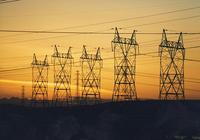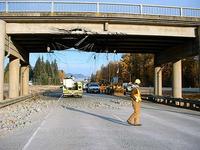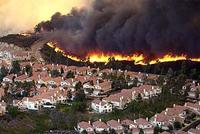-
Fukushima-derived radioactivity in seafood poses minimal health risks
Researchers find that the likely doses of radioactivity ingested by humans consuming fish contaminated by radioactive radiation escaping from the debilitated Fukushima reactors fish, are comparable to, or less than, the radiological dosages associated with other commonly consumed foods, many medical treatments, air travel, and other background sources.
-
-
U.S. unlikely to meet its biofuel goals

The Energy Independence and Security Act of 2007 (EISA) mandates that by 2022 the United States derive fifteen billion gallons per year of ethanol from corn to blend with conventional motor fuels. A new study says that if the climate continues to evolve as predicted by the Intergovernmental Panel on Climate Change, the United States stands little to no chance of satisfying its biofuel goals.
-
-
Government-developed standards not an effective cybersecurity approach: analyst
DHS said the department has “recently learned of a vulnerability that existed in the software used by a DHS vendor to process personnel security investigations.” analyst says that it is bad enough that hackers gained access to the personal information of thousands, but what is even more worrisome is the fact that DHS, with it spotty cyber security record, has been placed in charge of regulating the cybersecurity efforts of critical infrastructure industries.
-
-
Los Alamos director: cyber-securing U.S. electrical grid key to energy security

Los Alamos National Lab (LANL) director Charlie McMillan told a gathering of energy executives that securing the U.S. electrical grid is a major concern now, and it is only becoming more serious.
-
-
Hagel says Chinese cyberattacks a “growing threat”
Defense Secretary Chuck Hagel warned of a “growing threat” of cyberattacks against the United States, saying that America and its allies need to “establish international norms of responsible behavior in cyberspace.” Hagel spoke to an audience of defense analysts and defense ministers from Asia and Europe at the annual conference of the International Institute for Strategic Studies on Saturday.
-
-
Wildfires in west, southwest forcing hundreds from their homes
The arrival of summer has typically been accompanied by an increase in the number and intensity of wild fires in the U.S. southwest, and this year is no exception.
-
-
Health impact of Chernobyl accident overestimated: study

The impact of the Chernobyl nuclear accident has been seriously overestimated, while unfounded statements presented as scientific facts have been used to strangle the nuclear industry, according to Russian researchers.
-
-
Current methods of reducing arsenic contamination of water are not effective
Arsenic is now recognized to be one of the world’s greatest environmental hazards, threatening the lives of several hundred million people. Naturally occurring arsenic leaches into water from surrounding rocks and once in the water supply it is both toxic and carcinogenic to anyone drinking it. New research finds that most of the current technologies used around the world to reduce arsenic contamination are ineffective.
-
-
Lawmaker offers a way to finance U.S. infrastructure investment -- with no taxpayers’ money

Representative John Delaney (D-Maryland) says has an answer to the nation’s infrastructure problems, and that it will not cost taxpayers a dime. The money will be raised through the sale of special bonds, not guaranteed by the government, to companies that earn profits outside the United States.
-
-
House panel cuts DHS chemical plant monitoring program’s budget
Budget authors in the House proposed cutting almost $9 million from what DHS had requested for high-risk chemical tracking in the 2014 fiscal year. The House Appropriations Committee, indicating its lack of confidence in DHS’s oversight of fertilizer plants like Texas’s West Fertilizer Company, which exploded earlier this year, also withheld $20 million from the program until DHS responded in detail to questions the committee sent the department.
-
-
California Democratic lawmakers want a go-slow approach to fracking
California may be on the verge of an oil rush. It is estimated that hydraulic fracturing, or fracking, at the Monterey Shale formation may tap reserves of fifteen billion barrels of oil. Democratic lawmakers do not see it that way, and have proposed numerous anti-fracking bills aiming to control the use of the controversial technology. Ten bills have been tabled so far, and more are on the way.
-
-
Mitigating fires in the wildland-urban interface

More than forty-six million residential structures in about 70,000 communities in the United States are located in the so-called wildland-urban interface (WUI). On average, WUI fires destroy 3,000 buildings annually. They accounted for six of the ten most costly fires in the United States over the last 100 years. Five of these fires occurred in California, where the incidence of wildfires currently is up 47 percent this year over last.
-
-
Relying on natural gas-fired generators during electric grid failures
Natural gas-fired electricity generators can provide energy security at domestic military installations in the event of electric grid failures. A study found there is minimal risk of interrupted deliveries for a moderate outage (two weeks to three months).
-
-
Improving “crop per drop” boosts global food security, water sustainability
New study shows increasing crop water productivity could feed an additional 110 million people while meeting the domestic water demands of nearly 1.4 billion.
-
-
Chinese government hackers steal designs of advanced U.S. weapons systems
The Chinese government has been conducting a broad, sustained, and disciplined campaign of cyberattacks against U.S. government agencies, critical infrastructure, private companies, and news organizations. The public version of a study prepared for the Pentagon by the Defense Science Board now says that Chinese government hackers have also been able to penetrate the computer networks of all the major U.S. defense contractors, stealing the designs and specifications of the most advanced weapon system in the U.S. arsenal, and gaining insights into broad technologies on which U.S. military advances are based.
-
More headlines
The long view
Water Wars: A Historic Agreement Between Mexico and US Is Ramping Up Border Tension
As climate change drives rising temperatures and changes in rainfall, Mexico and the US are in the middle of a conflict over water, putting an additional strain on their relationship. Partly due to constant droughts, Mexico has struggled to maintain its water deliveries for much of the last 25 years, deliveries to which it is obligated by a 1944 water-sharing agreement between the two countries.
Trump Is Fast-Tracking New Coal Mines — Even When They Don’t Make Economic Sense
In Appalachian Tennessee, mines shut down and couldn’t pay their debts. Now a new one is opening under the guise of an “energy emergency.”
Smaller Nuclear Reactors Spark Renewed Interest in a Once-Shunned Energy Source
In the past two years, half the states have taken action to promote nuclear power, from creating nuclear task forces to integrating nuclear into long-term energy plans.
Keeping the Lights on with Nuclear Waste: Radiochemistry Transforms Nuclear Waste into Strategic Materials
How UNLV radiochemistry is pioneering the future of energy in the Southwest by salvaging strategic materials from nuclear dumps –and making it safe.
Model Predicts Long-Term Effects of Nuclear Waste on Underground Disposal Systems
The simulations matched results from an underground lab experiment in Switzerland, suggesting modeling could be used to validate the safety of nuclear disposal sites.
